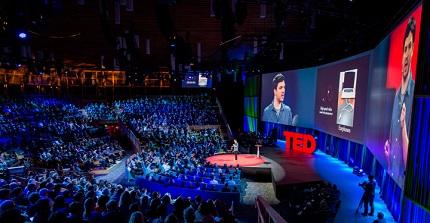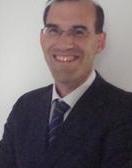
Por tercer año me decido, cuando se acerca el final del año, a listar las charlas TED que he visto y escuchado a lo largo del año. En este caso, en lo que a 2016 se refiere, he visto 47 charlas, lo que sumado a las que ya llevaba de años anteriores, me hace alcanzar la no desdeñable cifra de 233 charlas desde que en Noviembre de 2011 iniciase esta costumbre de, aproximadamente, una charla por semana.
En realidad he escuchado alguna más, aunque 'fuera de concurso', ya sea charlas vistas como material de clases de Inglés o, sobre todo, las correspondientes a la inauguración de TED2016 que pude ver casi en directo, en una sala de cine (en realidad, con un día de retraso, pero grabado en directo)
Con este bagage encima ya me cuesta algo más ir seleccionando nuevas charlas. Sigo recurriendo a personajes que me resultan atractivos, a autores de libros que he leído y me han gustado, o, a las recomendaciones que la propia página de TED realiza, ya sea de charlas que son tendencia o monográficos sobre teas de mi interés.
En las charlas de este año, desfilan personajes tan notables y variopintos como John Wooden, Daniel Kahneman, Monica Lewinsky, Sheryl Sandberg, Linus Torvalds, Mihaly Csikszentmihalyi, Elon Musk o Michael Porter, junto con personas que no conocía anteriormente.
Y, como consecuencia de estas charlas, he seguido a nuevas personas en Twitter, o en blogs o incluso me leído algún libro.
Y, sin más dilación, la lista de charlas que he visto este año es la siguiente:
- Kathryn Schulz: On being wrong
- John Wooden: The difference between winning and succeeding
- Ron Gutman: The hidden power of smiling
- Daniel Kahneman: The riddle of experience vs. Memory
- Carl Honoré: In praise of slowness
- Malcolm Gladwell: The unheard story of David and Goliath
- Heather Barnett: What humans can learn from semi-intelligent slime
- Robert Waldinger: What makes a good life? Lessons from the longest study on happiness
- Cameron Russell: Looks aren't everything. Believe me, I'm a model.
- Daniel Levitin: How to stay calm when you know you'll be stressed
- Regina Hartley: Why the best hire might not have the perfect resume
- Jedidah Isler: The untapped genius that could change science for the better
- Helen Fisher: Why we love, why we cheat
- Angela Lee Duckworth: The key to success? Grit
- Monica Lewinsky: The price of shame
- Sheryl Sandberg: Why we have too few women leaders
- Helen Fisher: The brain in love
- Martin Seligman: The new era of positive psychology
- Celeste Headlee: 10 ways to have a better conversation
- Geraldine Hamilton: Body parts on a chip
- Evelyn Glennie: How to truly listen
- J.J. Abrams: The mystery box
- Mihaly Csikszentmihalyi: Flow, the secret to happiness
- Linus Torvalds: The mind behind Linux
- Elon Musk: The mind behind Tesla, SpaceX, SolarCity …
- Nick Bostrom: What happens when our computers get smarter than we are?
- Jeremy Howard: The wonderful and terrifying implications of computers that can learn
- Benoit Mandelbrot: Fractals and the art of roughness
- Aimee Mullins: The opportunity of adversity
- Adam Grant: The surprising habits of original thinkers
- Lidia Yuknavitch: The beauty of being a misfit
- Dalia Mogahed: What do you think when you look at me?
- Jennifer Kahn: Gene editing can now change an entire species -- forever
- Lisa Nip: How humans could evolve to survive in space
- Don Tapscott: How the blockchain is changing money and business
- Tim Urban: Inside the mind of a master procrastinator
- Casey Gerald: The gospel of doubt
- Dave Brain: What a planet needs to sustain life
- Adam Foss: A prosecutor's vision for a better justice system
- Olivier Scalabre: The next manufacturing revolution is here
- Michael Porter: The case for letting business solve social problems
- Ellen Jorgensen: What you need to know about CRISPR
- Kevin Slavin: How algorithms shape our world
- Tim Brown: Tales of creativity and play
- James Flynn: Why our IQ levels are higher than our grandparents'
- Zeynep Tufekci: Machine intelligence makes human morals more important
- Peter Diamandis: Abundance is our future
Prefiero abstenerme de recomendar una en concreto. Quizá este año haya visto menos grandes oradores, y a cambio, sin embargo, haya seguido recibiendo interesantísimos conceptos y muy notables ideas, ideas que, como reza el lema de TED, vale la pena compartir... Y eso es lo que, modestamente, intento con este post que ya finalizo...compartir...
Artículos de este blog relacionados
- Mis #TEDTalks de 2015
- Mis TED Talks de 2014
- 100 TED Talks a modo de regalo

